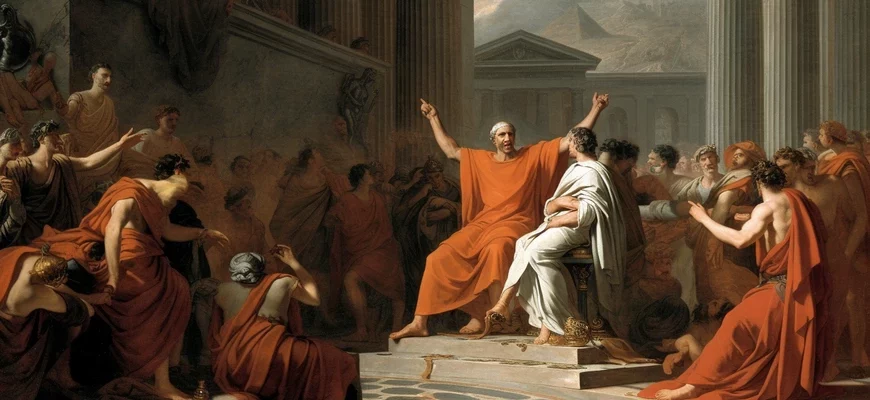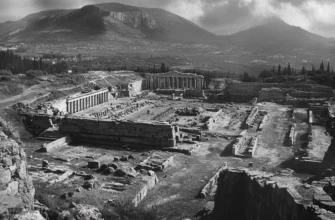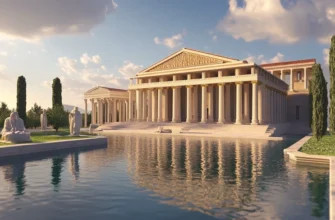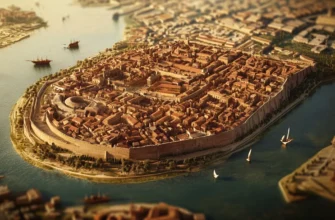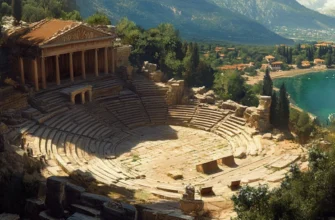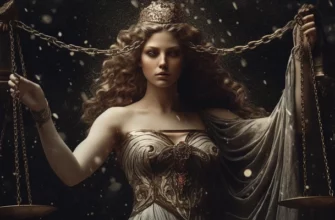Solon was one of the most prominent lawmakers of Ancient Greece. His reforms, adopted in 594 BC, led to significant political and social changes in Greek society. Among Solon’s social reforms were the abolition of debt slavery and the establishment of equality before the law for all citizens. In the political sphere, Solon introduced a new system of government based on the principles of equality and direct democracy. Solon’s reforms had a major impact on the development of democracy and social justice, not only in Ancient Greece but also in world history as a whole. They became an example to follow and inspired the further development of democracy and human rights in many countries around the world.
Ancient Greek history covers the period from approximately the 8th century BC to the Roman conquest of Greece in 146 BC. It was an era of great cultural, philosophical, and scientific achievements, such as the emergence of the first Olympic Games, the invention of democracy and the philosophical tradition, and the development of mathematics, astronomy, and medicine. Greek city-states such as Athens and Sparta played an important role in the development of culture and politics. Ancient Greek history is also known for its wars, particularly the Persian Wars and the wars between Athens and Sparta, which had a significant impact on world politics and culture.
- Solon’s social reforms
- Description of social problems in ancient Greece
- Description of Solon’s social reforms
- Analysis of the results of Solon’s reforms
- Solon’s political reforms
- Description of the political system of Ancient Greece
- Description of Solon’s political reforms
- Analysis of the results of Solon’s reforms
- The impact of Solon’s reforms on Athens and their legacy in world history
- Analysis of the legacy of Solon’s reforms in world history
Solon’s social reforms
Solon was an outstanding ancient Greek statesman and lawmaker who served as archon in 594 BC. He introduced a series of social reforms that reduced tensions between the wealthy and poor classes.
Among the most important social reforms introduced by Solon was the abolition of debt slavery, which meant that former slaves who had been sold into slavery for debts were freed and their debts were canceled. Limits were also placed on the size of land holdings, and those who exceeded these limits were forced to return the excess land.
In addition, Solon introduced a class system based on status and ability to pay taxes rather than on ancestry. This contributed to political development and stability in Athens.
As a result of Solon’s reforms, social inequalities in Athens were reduced and trust between different segments of the population was increased. They also paved the way for the further development of ancient Greek democracy and served as an example for other Greek city-states.
Description of social problems in ancient Greece
Ancient Greece had many social problems related to inequality and exploitation. For example, land was almost entirely in the hands of a few wealthy people, while the majority of the population consisted of poor peasants and landless workers. This led to widespread unemployment, poverty, and inequality.
In addition, slavery was widespread in ancient Greece and was the norm in society. This meant that many people were deprived of their freedom and property rights.
Ancient Greece also had many political problems, as power was in the hands of a small group of wealthy people, while the majority of the population had no right to vote or any influence on decision-making.
These social problems led to social tension, protests, and inequality in society, which were then resolved through social reforms, such as those introduced by Solon.
Description of Solon’s social reforms
Solon, archon (highest official) of Athens in the 7th-6th centuries BC, is known for his social reforms, which were aimed at reducing social inequality and improving the lives of the inhabitants of Athens. Here are some of his social reforms:
Lifting the ban on selling people into slavery who were heavily in debt. Instead, Solon introduced a debt repayment system to avoid pointless slavery.
Introducing four levels of property distribution for Athenian citizens, which gave a wider range of people access to political power.
Passing a law abolishing debts on farmland and freeing peasants from slavery, which was one of the most important social reforms.
Creating the Council of Four Hundred, which was made up of representatives from the four property classes and was responsible for making laws, which allowed for more people to participate in politics.
These reforms helped reduce social tensions, promoted the growth of the middle class, and expanded the circle of people who had access to political power in Athens. They were very important for the development of democracy in Ancient Greece and had a significant impact on society as a whole.
Analysis of the results of Solon’s reforms
Solon’s reforms had a significant impact on the political and social life of Athens in Ancient Greece. Although some changes were a step in the right direction, others did not produce the expected results.
Among the positive results, we can highlight the reduction of debt and the improvement of the situation of farmers and other categories of the population. A limit was also placed on power, which prevented overly influential citizens from monopolizing power.
However, some reforms had little impact. For example, the conditions for the return of land in arrears were extremely restrictive, preventing many farmers from regaining their plots. Furthermore, Solon failed to ensure equality before the law, which was one of his main goals.
Despite these limitations, Solon’s reforms were an important step toward democracy in Athens. They laid the foundation for further political changes in Greek history, including the reforms of Cleisthenes and Pericles.
Solon’s political reforms
Solon was known not only for his social reforms, but also for his political ones. He understood that the system of government needed to be changed to ensure a more level playing field for all citizens.
One of the main political reforms was the establishment of four philosophers as an electoral commission that controlled elections to public office. This reduced the influence of wealthy and influential citizens on elections, ensuring greater equality of participation in the political life of Athens.
Solon also prohibited the state leadership from interfering in the private affairs of citizens, established fines for corruption, and created a system of popular justice that allowed every citizen to represent their interests in court.
These reforms established a new form of government that was more equal and democratic, but it was still not a full democracy, which only appeared in Athens half a century after Solon’s reforms. Thus, Solon’s political reforms ensured some progress towards democracy and were an important stage in the history of Athens.
Description of the political system of Ancient Greece
The ancient Greek political system was based on the concept of democracy, where power belonged to the people. Citizens had the right to vote in popular assemblies, where important decisions were made. Political life was regulated by laws, in particular the Draconian Code, which regulated relations between citizens and the state, as well as granting rights and obligations to citizens. In addition, ancient Greek philosophers and thinkers participated in political life, contributing to the development of democracy and political thought. However, important decisions were not made by all citizens, but only by those who had a certain status and property. There were also monarchical forms of government, where power belonged to a monarch or tyrant.
Description of Solon’s political reforms
Solon, an Athenian lawgiver, introduced a series of political reforms that changed the system of government in Athens. He took the first step toward establishing democracy by expanding the circle of citizens who had the right to participate in political life. He rejected the monarchical form of government, transferring power to the people. He also introduced equality of all citizens before the law, prohibiting slavery for debt and improving the status of women and other disadvantaged groups.
Solon created a new constitution, dividing citizens into four classes according to their property status. Each class had its own duties and rights, but all had the opportunity to be elected to political office and participate in legislative assemblies. He reduced the influence of the aristocracy and prohibited the sale of offices and titles. Solon also introduced a popular court, which allowed ordinary citizens to hear court cases, not just aristocrats.
Solon’s reforms brought a new force into the political life of Athens: the middle class, which became more active in elections and the process of governing. Solon’s reforms were the first step toward establishing democracy and improving the social and political situation of the people of Athens.
Analysis of the results of Solon’s reforms
Solon’s reforms were an important step towards democratic change in Ancient Greece. They were the first steps in the struggle for equality, justice, and democracy. In particular, Solon’s reforms helped reduce social tensions in Athens and improve the condition of the poor.
However, not all of Solon’s contemporaries supported him. He was criticized and despised by aristocratic circles who did not want to lose their positions and power. He also failed to solve all social problems and stop conflicts between different segments of the population.
Nevertheless, Solon’s reforms initiated the process of democratization and became an important stage in the development of the political and social system of Ancient Greece. They served as an example for future generations of reformers and led to the emergence of Athenian democracy, which became a model for subsequent civilizations.
The impact of Solon’s reforms on Athens and their legacy in world history
Solon’s reforms had a significant impact on the history of Athens and world history. Solon paved the way for democratic reforms that took place later. In particular, his reforms strengthened the position of the middle class and prevented their social division. They contributed to the development of crafts and trade, which led to an increase in the wealth and influence of these classes in the political process.
The democratic system that was introduced in Athens in the following centuries had its roots in Solon’s reforms. His ideas on civil rights, legislation, and equality before the law gave impetus to the democratization of the political system. These ideas also played an important role in the development of democracy in other states that followed the example of Athens.
In world history, Solon’s reforms are considered one of the most significant in terms of the development of democracy and human rights. His ideas have survived the centuries and have been incorporated into the legislation of many countries around the world. Solon’s reforms are an example of how society can be changed for the better through socio-economic and political reforms.
Analysis of the legacy of Solon’s reforms in world history
Solon’s reforms are considered one of the most important events in the history of ancient Greek civilization. They were carried out around 594 BC, when Athens was on the verge of social, political, and economic crisis.
Solon’s reforms changed the way of life of the citizens of Athens, making them more democratic and equal before the law. Solon gave every citizen, regardless of status or wealth, the opportunity to participate in decision-making, which became the basis for democracy, which was later developed in Athens.
Solon’s reforms also had a significant impact on European history. For example, his ideas about justice, democracy, and equality before the law were reflected in Roman law and the national constitutions of European countries. Many politicians and philosophers, such as Aristotle and Montesquieu, studied and used Solon’s ideas in their works.
Solon’s reforms also taught us important lessons about the importance of democracy and human rights. They helped shape the modern concept of human rights and made people understand that any regime that does not ensure equality, justice, and rights leads to social and economic instability.
In world history, Solon’s reforms have become a symbol of democracy, equality, and human rights, which is reflected in the Constitution of the United States and other modern democratic countries. In the 20th century, Solon’s ideas of equality before the law and democracy were taken up by many countries that were on the path to democratic development.
In particular, in the second half of the 20th century, democratic reforms were carried out in Latin American countries, where constitutions were changed and parliamentary regimes were established. Solon’s ideas of equality before the law and human rights had a great influence on these reforms.
Solon’s ideas were also an important source of inspiration for the struggle for black rights in the United States. He taught that every citizen has the right to equality before the law and to a fair trial.
Thus, it can be said that Solon and his reforms had a huge impact on world history and became important sources of inspiration for movements for democracy and human rights around the world.
